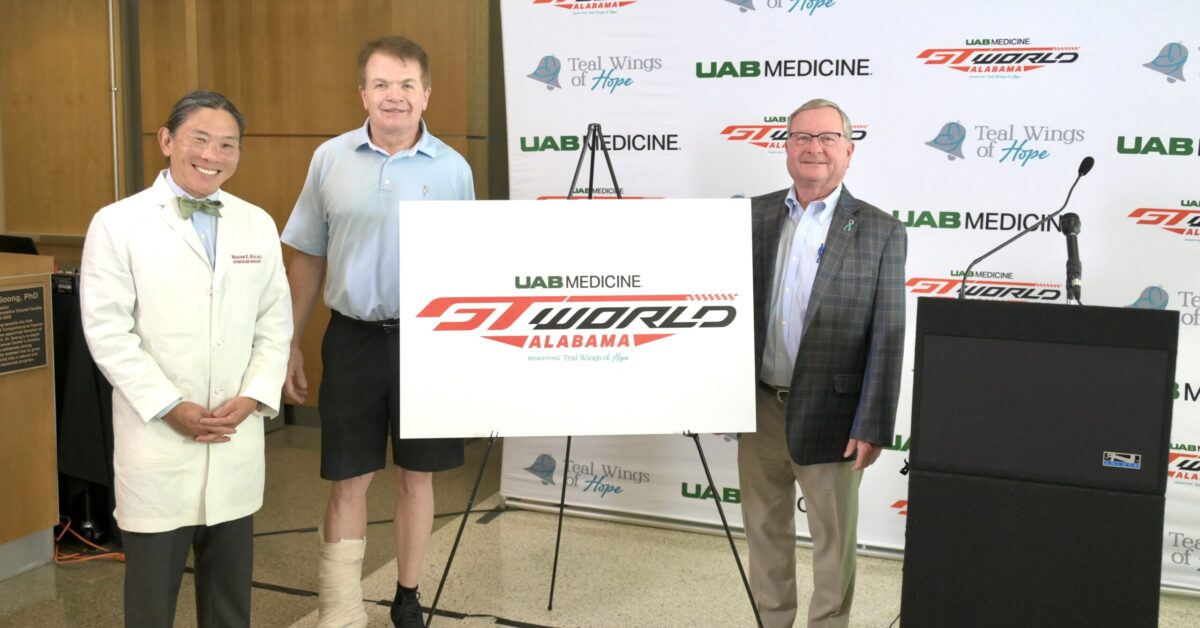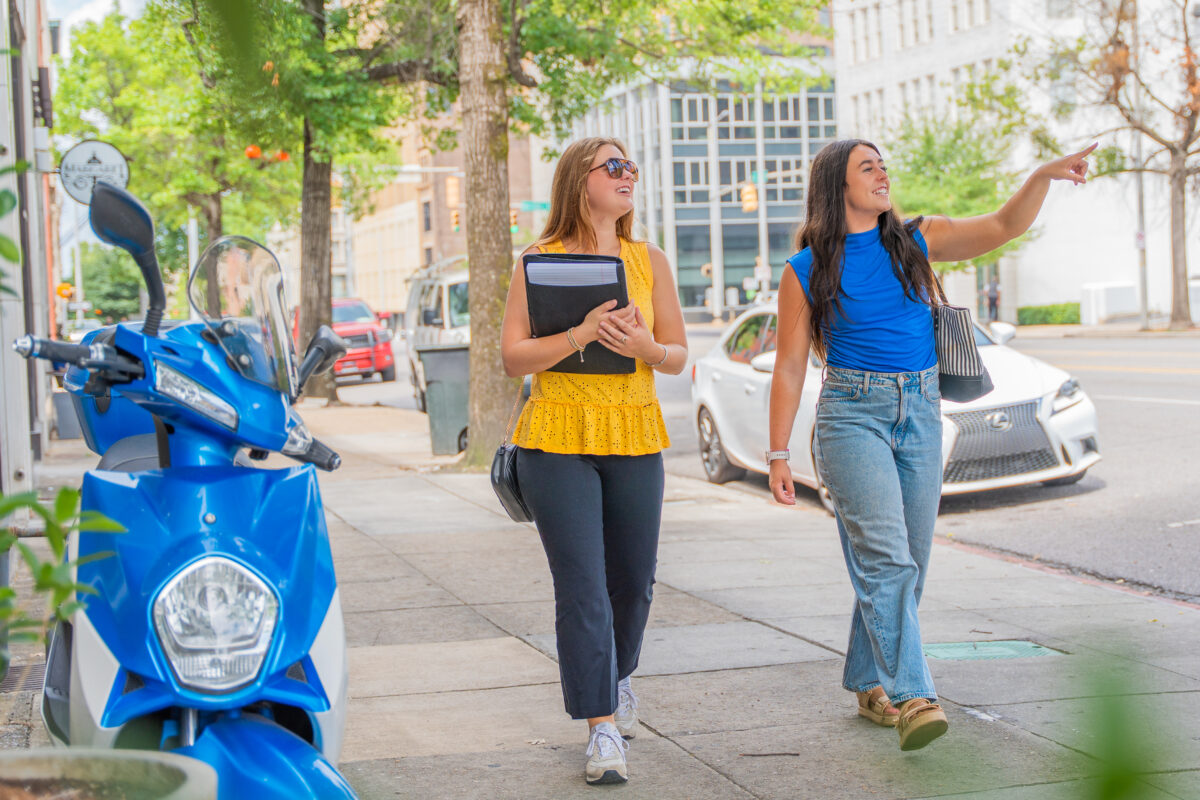Searching for solutions: How do we overcome persistent poverty?
Reading time: 4 minutes
Sponsored

Overcoming persistent poverty is one of the Community Foundation of Greater Birmingham’s top priorities for the next 10 years. Laura Moore, Deputy Policy Director at Opportunity Insights, concluded the Community Foundation’s “Woven Together” Learning Series.
Keep reading to find out what they’re planning.
Persistent poverty
Moore addressed overcoming persistent poverty, one of the Foundation’s five new priorities adopted this year as part of their 10-year strategic plan.
The other four Community Foundation priorities are:
- Nurturing Thriving Communities
- Fostering Equity and Inclusion
- Driving Regional Cooperation
- Creating Economic Opportunity for All
Speaking in front of a filled-to-capacity audience at Birmingham-Southern College, Moore’s presentation, The Geography of Upward Mobility in Birmingham, resulted in loads of research data on opportunity inequality in the Birmingham area.

Her 50-minute talk compared the impact low incomes have on opportunities in Birmingham neighborhoods. It emphasized the need to develop scalable policies that empower families to rise out of poverty and achieve better outcomes.
Two Approaches
“She highlighted two broad approaches Opportunity Insights is working on with other communities that are compelling, understandable and complementary,”, according to Gus Heard-Hughes, Vice President of Programs at the Community Foundation of Greater Birmingham.
Those two approaches are:
- Reducing segregation—Increase Access to High-Opportunity Areas by Providing Affordable Housing
- Place-based Investment—Invest in Low-Opportunity Neighborhoods to Increase Upward Mobility.
“It’s important that neighborhoods don’t get left behind, and that we invest in and value all the neighborhoods and communities,” Heard-Hughes added.
“Increasing opportunity means expanding choices for families and breaking down systemic barriers.”
Charlotte, North Carolina

During the question and answer period of the program, Moore described Opportunity Insights’ work and partnerships in Charlotte, North Carolina to combat persistent poverty.
Ranked 50th out 50 municipalities in Upward Mobility in 2013, Charlotte has partnered up and begun to make some major investments.
Here are some examples:
- The United Way of Central Carolinas aligned the economic mobility report with $13 million of investments
- Mecklenburg County and Pre-K increased the early child care budget by $15 million, added 33 new Pre-K classrooms serving an additional 600 children
- The City of Charlotte increased affordable housing bonds from $15 to $50 million, with Mayor Lyles, City Council, and voters’ support
- The Foundation for the Carolinas invested $5 million in affordable housing and raised a total of $31 million of private sector funds to support affordable housing
“Every community is different in terms of who they can pull together to tackle the big issues,” she stated.
“A community foundation can begin a community-wide conversation. Foundations can be a very important voice to raise items to be put on a collective agenda.”
Community Foundation to begin implementing 5 priorities in 2020

2019 has been an extraordinary year for the Community Foundation of Greater Birmingham. Along with celebrating its 60th anniversary and adopting five new priorities for a 10-year strategic plan, the venerable organization has invited national leaders to meet and discuss the organization’s new path.
Did you miss Woven Together events?
If you missed any of the Woven Together events, the Community Foundation has uploaded them on their website, along with a description about each presentation.
Check them all out here:
Equity and Inclusion (October)
Dr. Tricia Rose
Brown University
https://www.cfbham.org/news/woven-together-equity-and-inclusion-with-dr-tricia-rose/
Thriving Communities (August)
Dr. Anita Chandra
RAND Corporation
https://www.cfbham.org/news/woven-together-thriving-communities/
Economic Opportunity For All (May)
Amy Liu
Brookings Institute
https://www.cfbham.org/news/woven-together-economic-opportunity/
What’s Next?
2020 is going to be a big implementation year for the Community Foundation of Greater Birmingham.
Find out how you can get involved at cfbham.org
Sponsored by:




